Overview
Automated systems in healthcare are revolutionizing patient care today by significantly enhancing clinical decision-making, streamlining administrative tasks, and improving patient engagement through advanced technologies like AI and telemedicine. We recognize the transformative potential of these systems, which include:
- AI-driven tools for diagnostics and treatment
- Robotic surgeries that expedite recovery times
- Predictive analytics that tailor care to individual needs
These innovations underscore their substantial impact on improving healthcare outcomes and operational efficiency. What challenges do you face in adopting these technologies? By integrating automated systems into your practice, you can not only overcome these hurdles but also elevate the standard of care you provide. We invite you to explore how these solutions can empower your organization and lead to improved patient experiences and outcomes.
Introduction
In the rapidly evolving landscape of healthcare, we recognize that technology is playing a pivotal role in enhancing patient care and clinical outcomes. Consider advanced AI models like Google’s Med-PaLM 2, which aids healthcare professionals in making informed decisions, alongside the revolutionary Da Vinci Surgical System that transforms minimally invasive surgery. The integration of digital tools is reshaping the way we deliver care. Innovations such as:
- Baby sleep monitoring projects
- Robotic process automation
not only improve safety and efficiency but also personalize patient experiences. As telemedicine platforms expand access to care and predictive analytics enable tailored treatment plans, we embrace a future where technology humanizes interactions and empowers both patients and providers. This article delves into the latest advancements in healthcare technology, highlighting how these innovations are revolutionizing patient engagement, safety, and overall care management. What are the implications for your practice? Join us as we explore these transformative changes.
Google’s Med-PaLM 2: Enhancing Clinical Decision-Making
We are proud to introduce Med-PaLM 2, our cutting-edge AI model designed to empower medical professionals in making informed clinical decisions. In a landscape where timely decisions are critical, this innovative tool analyzes vast amounts of medical data to provide real-time insights and recommendations, effectively reducing the cognitive load on clinicians. Imagine the difference this could make in emergency situations—where every second counts. By comprehensively addressing intricate medical inquiries, we enhance diagnostic precision and treatment strategies, ultimately leading to superior outcomes for individuals.
Furthermore, as highlighted in recent discussions surrounding digital medicine, the integration of AI technologies like Med-PaLM 2 aligns with the broader trend of humanizing medical services through innovative solutions. By leveraging AI alongside virtual reality (VR), we enable healthcare providers to offer more personalized and empathetic care, effectively addressing individual needs. This synergy not only streamlines clinical workflows but also enhances data accessibility, empowering individuals to take control of their health information and treatment options.
What’s holding your team back from embracing these transformative technologies? We invite you to explore how Med-PaLM 2 can revolutionize your clinical practice, fostering a future where informed decision-making is at the forefront of patient care.
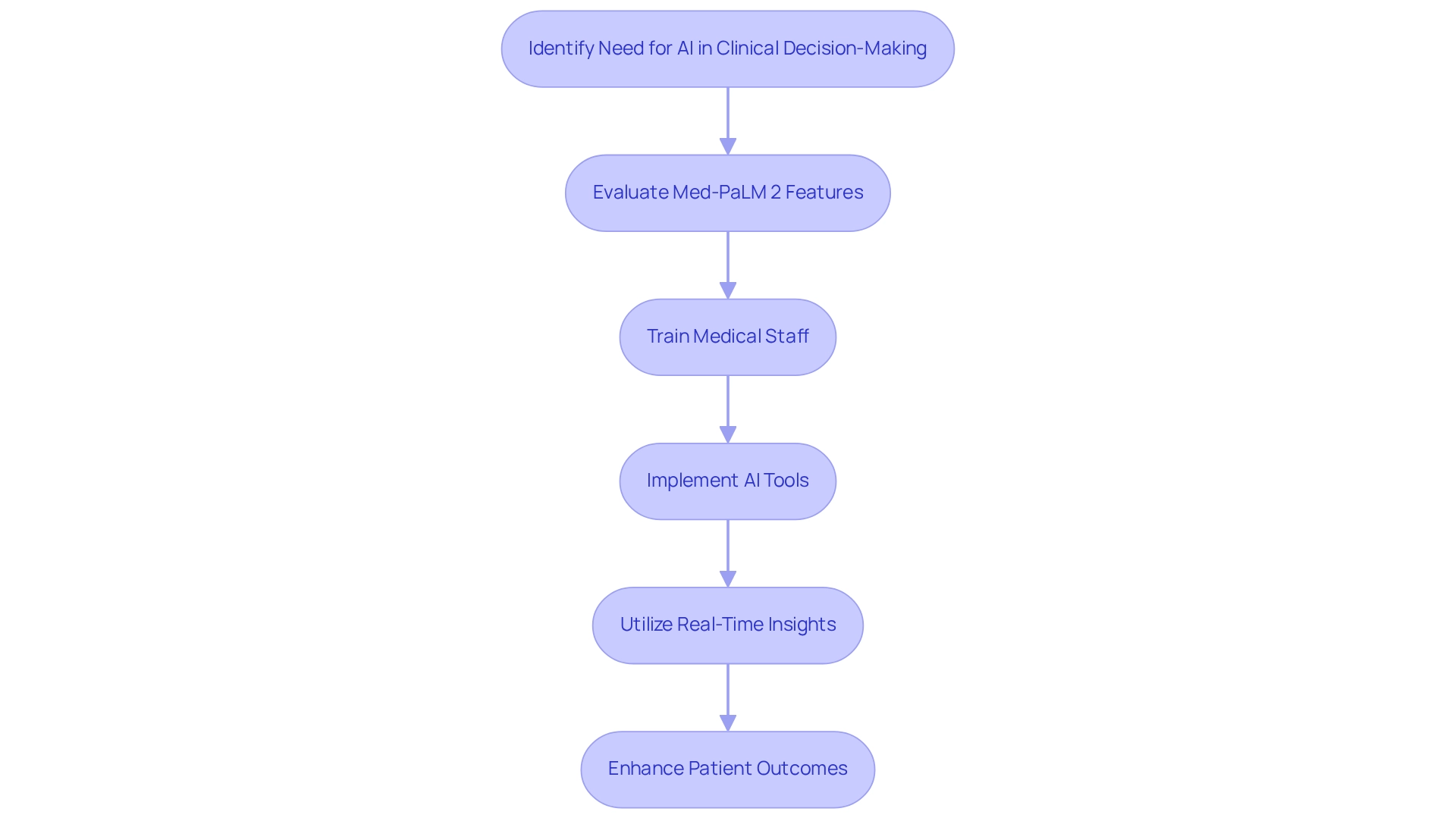
Da Vinci Surgical System: Revolutionizing Minimally Invasive Surgery
We are witnessing a significant advancement in minimally invasive surgery with the Da Vinci Surgical System, which seamlessly integrates cutting-edge technologies like artificial intelligence (AI) and virtual reality (VR) to enhance surgical precision and control. This robotic system empowers our surgeons to perform intricate procedures through small incisions, significantly reducing pain, shortening hospital stays, and accelerating recovery times for our patients.
As the healthcare landscape increasingly embraces digital medicine, automated systems such as Da Vinci are becoming indispensable in surgical practices. They not only enhance surgical outcomes but also personalize treatment, creating a more interactive and supportive surgical experience.
The integration of AI and VR technologies exemplifies how automated systems can elevate patient satisfaction and improve overall healthcare management.
What’s holding your team back from leveraging these transformative technologies? Let us guide you in embracing the future of surgery.
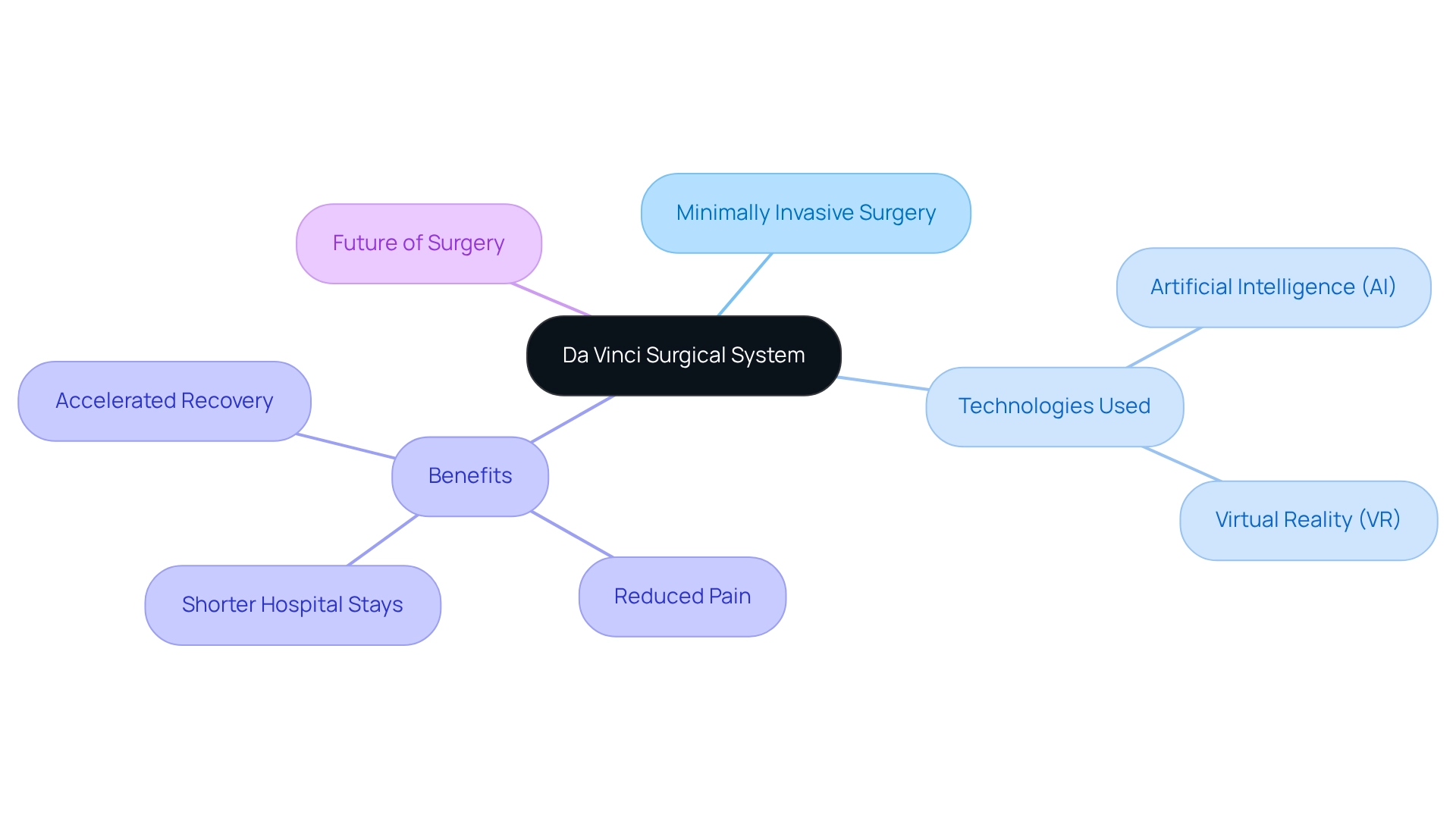
Baby Sleep Monitoring Projects: Ensuring Infant Safety and Well-Being
Innovative baby sleep monitoring projects leverage cutting-edge technology to meticulously track infants’ sleep patterns, ensuring their safety and well-being. These advanced systems monitor vital signs, including heart rate and oxygen levels, providing real-time alerts to parents regarding any irregularities. This proactive approach empowers caregivers to make informed decisions about their child’s health, significantly reducing the risk of sleep-related incidents. Notably, the implementation of these monitoring systems has been linked to improved sleep hygiene for infants, fostering a safer sleep environment.
Recent statistics highlight the effectiveness of such technologies; since the launch of the American Academy of Pediatrics’ safe sleeping campaign in 1994, the number of sudden infant death syndrome (SIDS) cases has sharply declined, illustrating the positive impact of increased awareness and monitoring. However, approximately 1,300 infants still succumb to SIDS annually in the United States, underscoring the ongoing need for effective monitoring solutions.
Expert opinions further reinforce the importance of these systems. Dr. Manrique, a pediatric hospitalist, notes that while monitors can enhance safety, improper usage may lead to increased stress among families due to false alarms. This emphasizes the necessity for proper education on the correct use of monitoring devices to maximize their benefits. Parents should be aware of how to interpret alerts and when to seek medical advice, ensuring they are well-prepared to respond appropriately.
Case studies reveal that many families struggle with the correct usage of home apnea monitors, which can create a false sense of security regarding SIDS prevention. Ensuring that caregivers are well-informed about the functionality and limitations of these devices is crucial for their effectiveness. Additionally, broader societal investments are needed to address disparities affecting SIDS rates, as highlighted by experts like Goldstein. Overall, the integration of automated systems in healthcare, such as baby sleep monitoring technology, not only enhances infant safety but also supports families in navigating the complexities of infant care. To maximize the benefits of these systems, we encourage parents to engage in training sessions or workshops that focus on the proper use of monitoring devices.
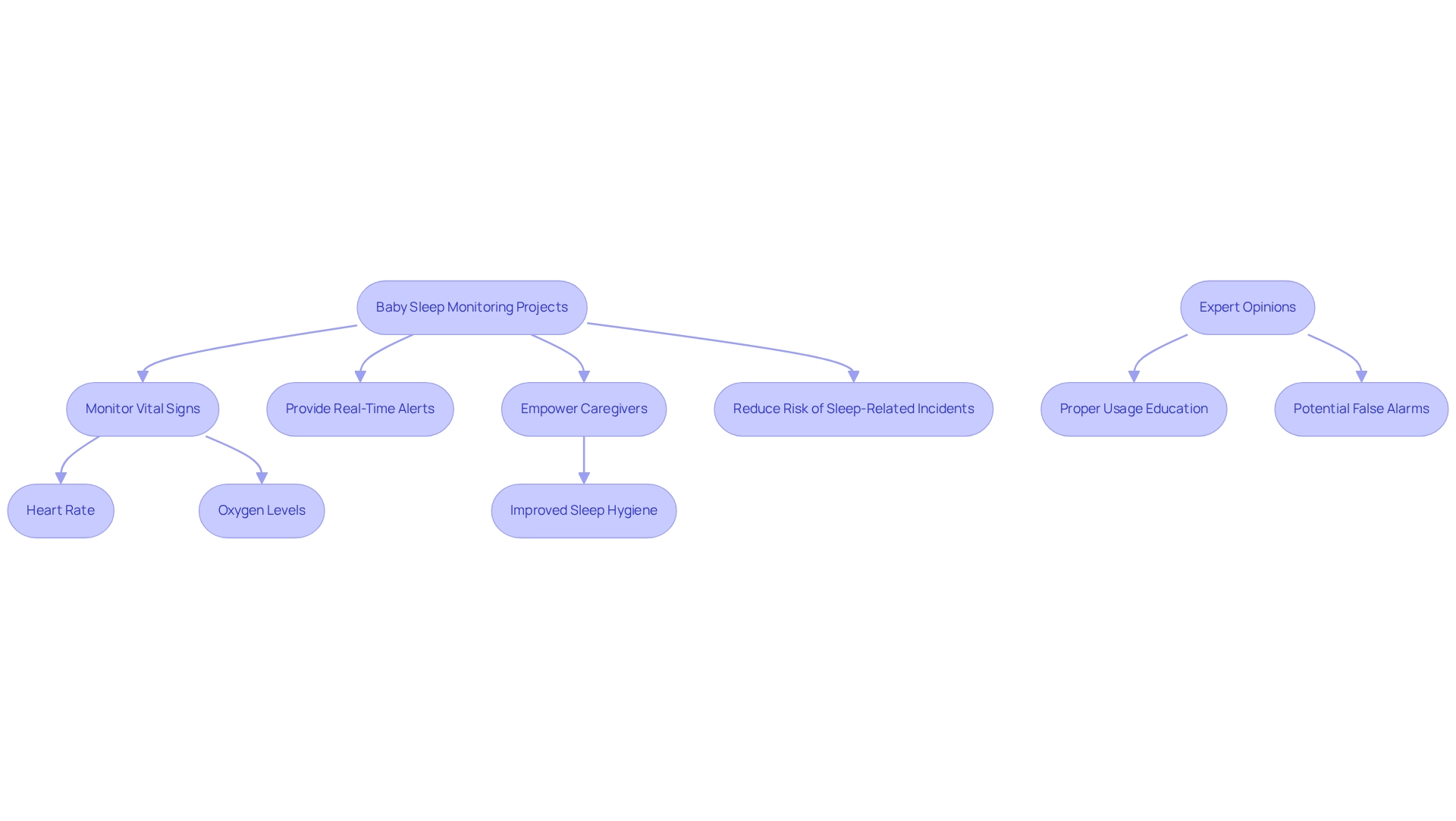
Robotic Process Automation (RPA): Streamlining Administrative Tasks
Automated systems in healthcare, including Robotic Process Automation (RPA), are revolutionizing the administrative landscape of the medical sector by streamlining repetitive tasks such as:
- Patient scheduling
- Billing
- Data entry
This technology not only alleviates the burden on our medical staff but also reduces errors and enhances operational efficiency. By leveraging our Secure Hybrid Integration Platform, we enable medical organizations to:
- Maximize the value of their legacy systems
- Simplify complex integrations
- Gain real-time insights with monitoring and alerts on system performance, ensuring 24/7 uptime and reliability
This integration allows medical providers to focus more on client support rather than administrative tasks, ultimately leading to improved service delivery and client satisfaction. Furthermore, as RPA optimizes these processes, it significantly lowers expenses and enhances data accessibility, which improves the effectiveness of automated systems in healthcare, facilitating a more personalized approach.
What’s holding your team back from embracing this transformation? Let us partner with you to navigate these complexities and unlock the full potential of your healthcare operations.
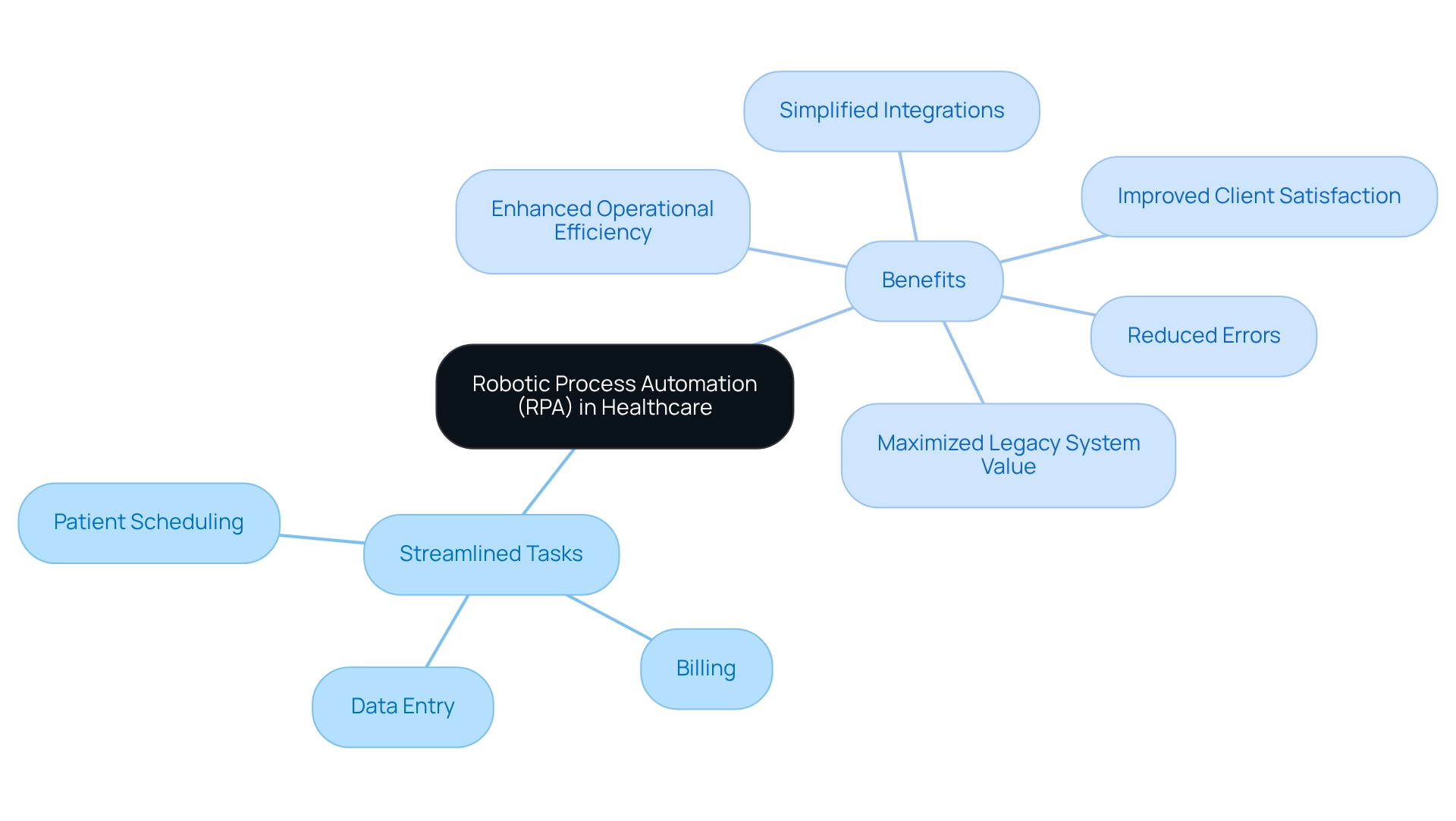
AI-Driven Drug Discovery: Accelerating Therapeutic Innovations
AI-driven drug discovery is revolutionizing the pharmaceutical industry, significantly accelerating the identification and development of new therapeutic compounds. By leveraging machine learning algorithms, we analyze vast datasets to predict interactions between various compounds and biological systems. This approach not only expedites the discovery phase but also reduces costs associated with traditional drug development methods.
Moreover, our integration of AI and automated systems in healthcare extends beyond drug discovery; it plays a crucial role in enhancing care experiences through applications like virtual reality (VR) and automated systems that humanize care encounters. For instance, AI-powered solutions deliver customized user interactions, providing comprehensive information about care alternatives and fostering a nurturing atmosphere for individuals.
Furthermore, VR applications have shown promise in addressing conditions such as PTSD, where immersive experiences assist individuals in confronting and processing traumatic events. Consequently, our automated healthcare systems, powered by AI, create opportunities for more efficient and tailored care, effectively addressing unmet medical needs while transforming the overall experience for individuals receiving care.
We cannot overlook the significance of data accessibility, as empowering individuals with control over their health information is vital for exploring these innovative treatment options.
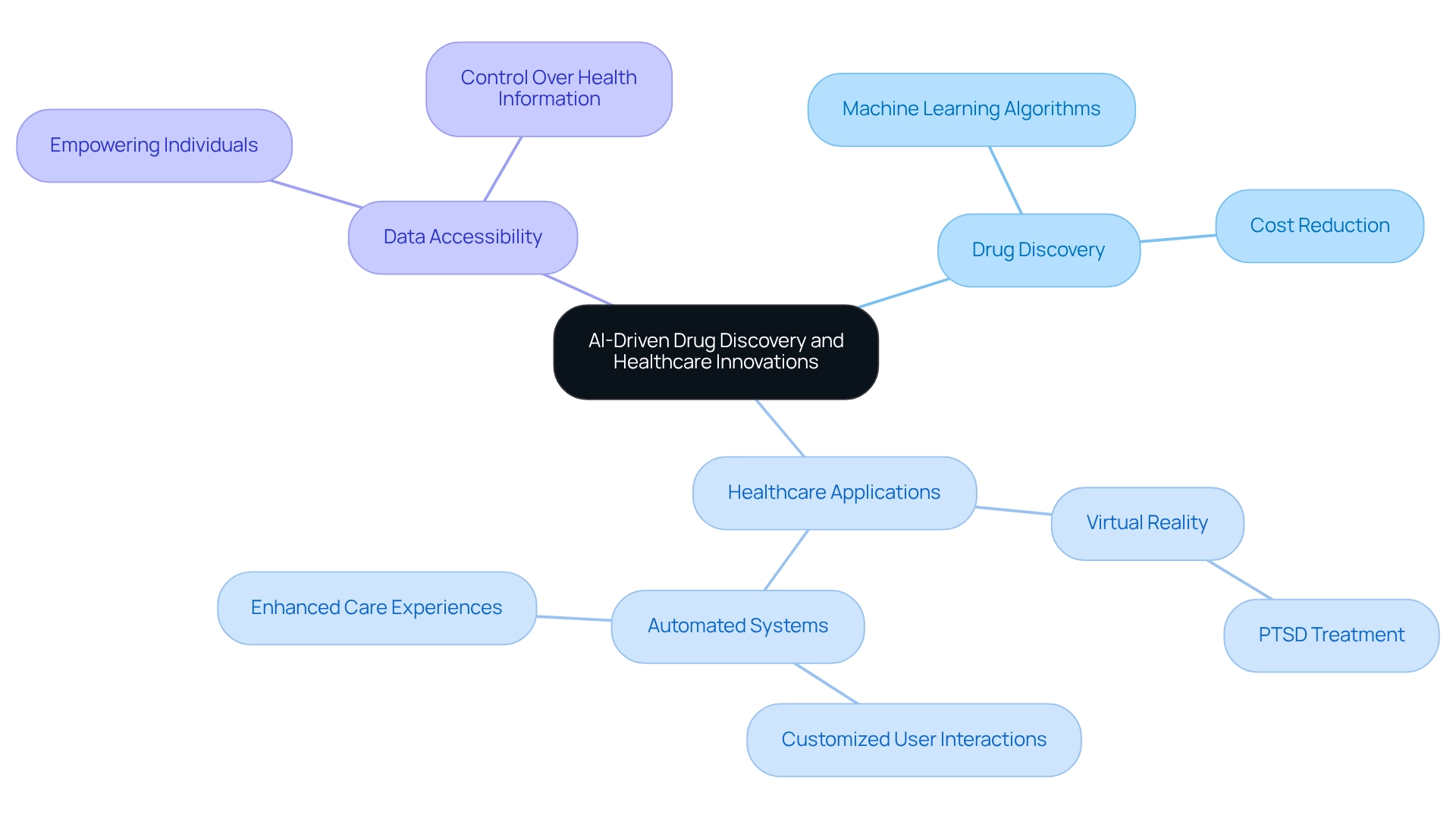
Telemedicine Platforms: Expanding Access to Care
Telemedicine platforms are not merely beneficial; they are becoming essential in broadening access to medical services, particularly for individuals in remote or underserved regions. We recognize that these platforms enable virtual consultations, allowing individuals to connect with medical providers from the comfort of their homes. By lowering obstacles such as travel time and costs, telemedicine significantly enhances client involvement and compliance with care strategies.
Furthermore, the integration of digital medicine—including advancements in artificial intelligence (AI) and virtual reality (VR)—is revolutionizing care by presenting innovative options that humanize healthcare. For instance, AI-powered avatars like SimCoach can offer personalized assistance and information, while VR applications effectively alleviate pain and anxiety during medical procedures, as seen in the care of burn victims and children undergoing needle procedures.
We must also acknowledge the critical importance of data accessibility; empowering individuals to control their health information is vital for exploring these new care alternatives. As medical services continue to evolve, we believe that telemedicine, supported by these digital innovations and an open-data future, is poised to play a pivotal role in ensuring equitable access to care for all individuals. Together, we can embrace this transformation and lead the way in enhancing healthcare accessibility.
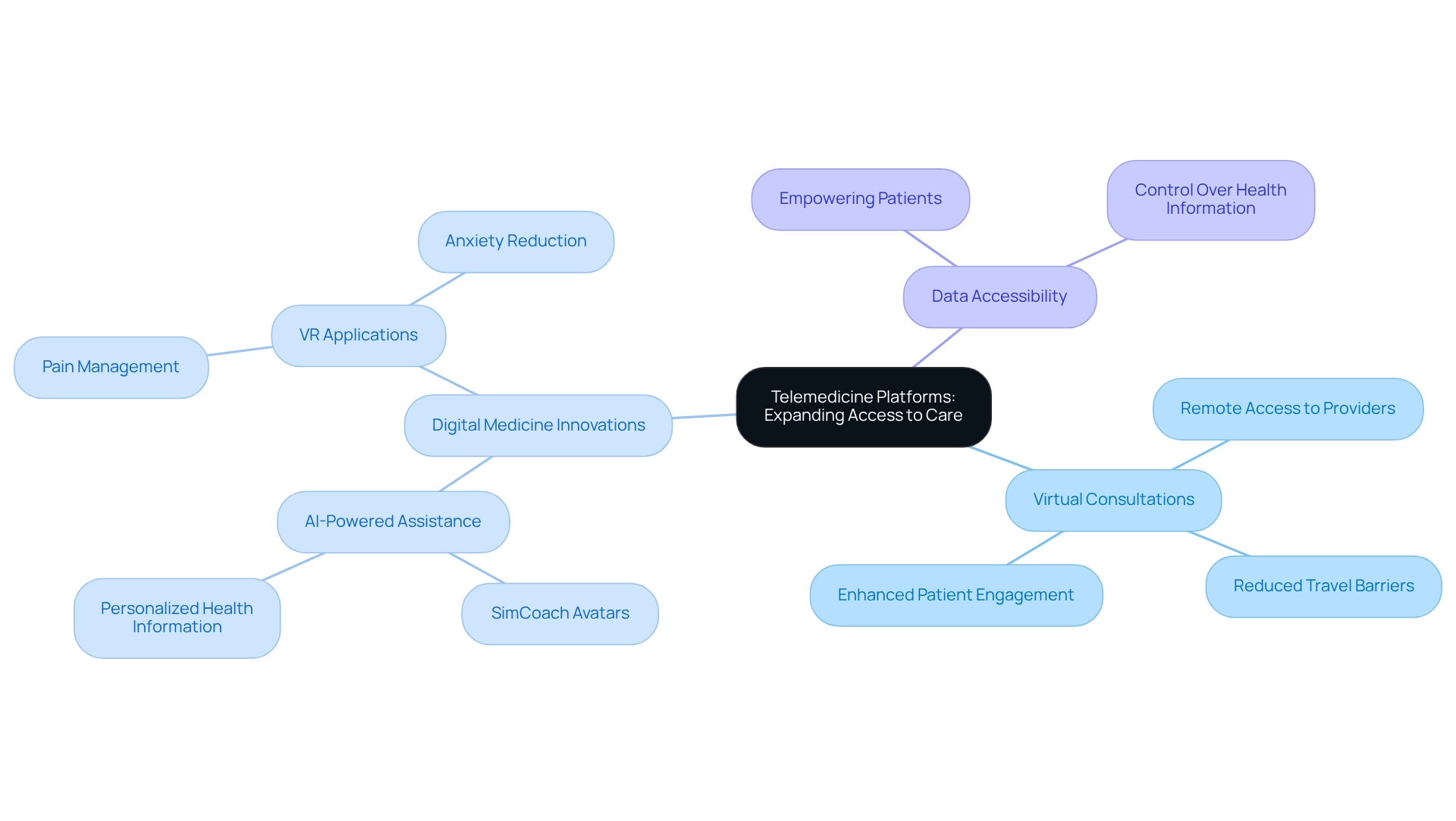
Predictive Analytics: Personalizing Patient Care
Predictive analytics is revolutionizing care for individuals, empowering us to tailor treatments based on extensive individual data. By harnessing both historical and real-time information, we can effectively identify individuals at risk and implement timely interventions. This proactive strategy not only enhances outcomes for individuals but also optimizes resource distribution within medical systems. For instance, a single-day reduction in average hospital stays can yield significant savings, as illustrated by Gloucester Hospitals, which reported £1.7 million in savings from such efficiencies.
As predictive analytics continues to advance, its role in delivering personalized healthcare solutions will only expand. The integration of digital medicine, particularly through AI and VR, is pivotal in this transformation. Real-world applications, such as biometric individual identification systems, highlight how predictive analytics can enhance accuracy in matching individuals, thereby reducing misidentification errors. With accuracy rates as low as 80% in single care settings and dropping to 50% among organizations sharing electronic health information, the urgency for dependable identification solutions is clear. Medical organizations face considerable financial challenges, averaging $1.3 million annually on identity resolution and losing approximately $17.4 million each year due to denied insurance claims related to incorrect identification.
We recognize the importance of virtual health assistants and AI-driven solutions, like SimCoach, which can significantly improve the quality, efficiency, and cost-effectiveness of medical delivery while enhancing engagement. For example, AI can provide comprehensive care alternatives and assistance for individuals, ensuring they have access to the information they require. As predictive analytics advances, it will be crucial in forming tailored treatment strategies, ultimately leading to improved outcomes for individuals and a more effective medical system.
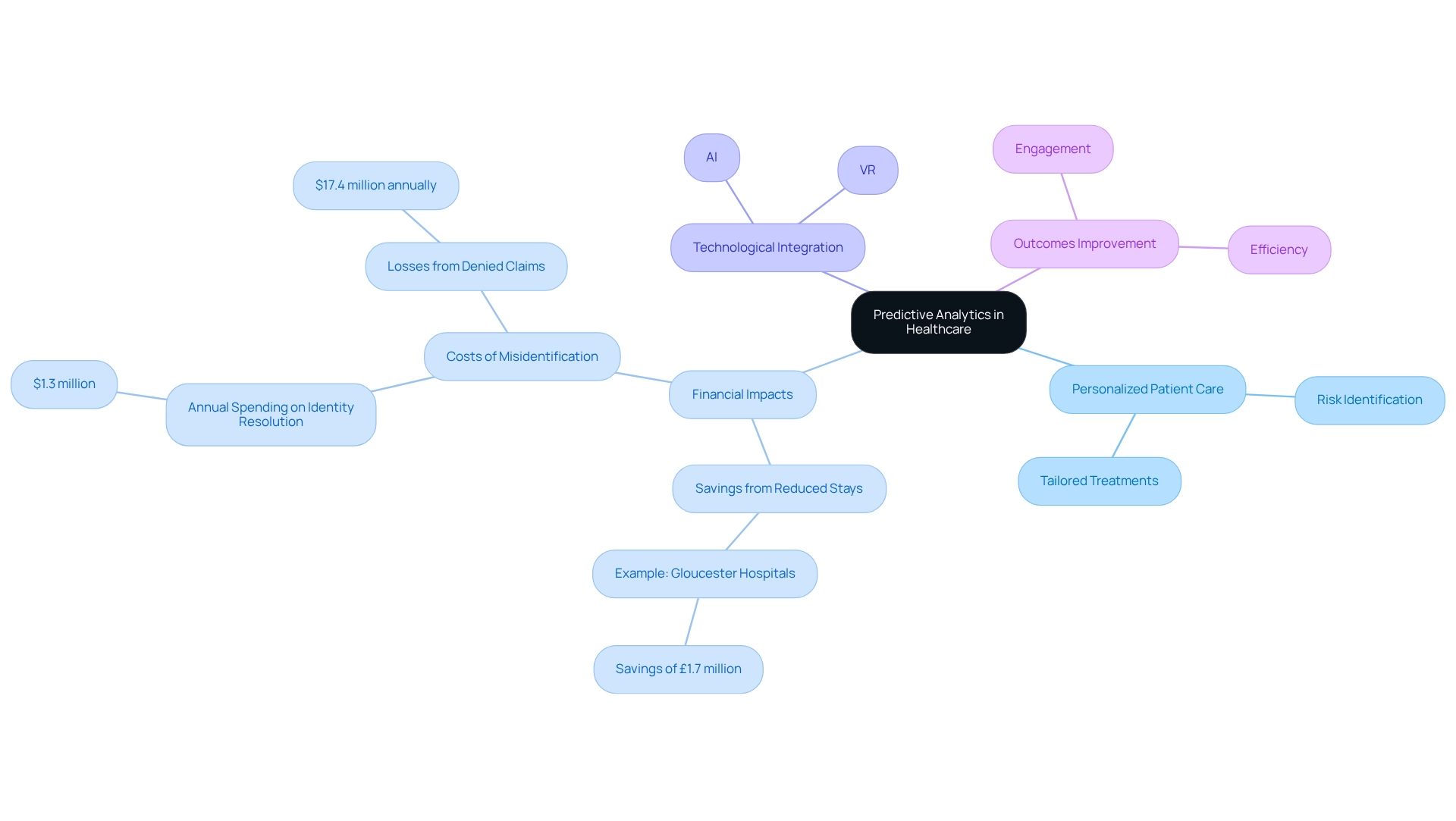
Patient Engagement Solutions: Improving Communication and Satisfaction
Engagement solutions are vital for enhancing communication between medical providers and individuals through automated systems in healthcare. These tools not only facilitate better information sharing, appointment scheduling, and follow-up care but also significantly enhance satisfaction among individuals.
The integration of digital medicine, particularly through artificial intelligence (AI) and virtual reality (VR), is revolutionizing how individuals engage with their healthcare. For instance, AI can provide tailored guidance and assistance, exemplified by the AI avatar named Nadia, which interacts with individuals to present comprehensive care alternatives. Furthermore, VR can create immersive experiences that help individuals manage discomfort and anxiety during procedures, similar to the SimCoach virtual avatar that supports veterans dealing with PTSD.
By empowering individuals to take an active role in their medical journey, these solutions foster stronger relationships and improve adherence to treatment plans. Moreover, ensuring that patients have access to their health data is essential for exploring these innovative options. As the medical field increasingly prioritizes patient-centered care, we recognize that automated systems in healthcare, enhanced by digital technologies, will be crucial in achieving positive health outcomes.
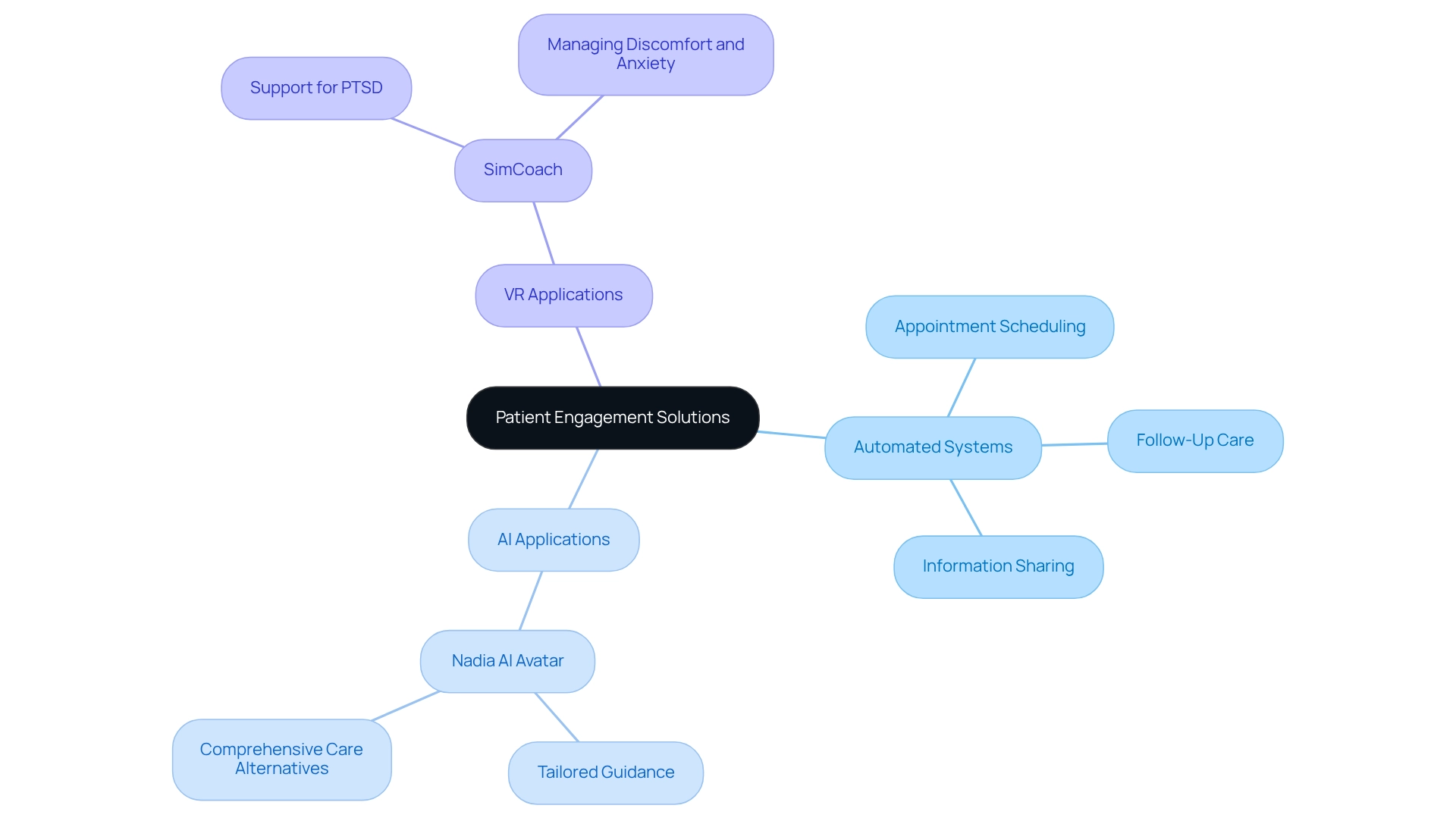
Workflow Automation Tools: Increasing Operational Efficiency
Automated systems in healthcare are revolutionizing the way medical organizations operate, streamlining processes and minimizing manual tasks. We recognize that Avato’s secure hybrid integration platform is designed for safe transactions, ensuring 24/7 availability and dependability—essential features for the intricate systems in the medical field. Trusted by banks, medical organizations, and government entities, we securely manage complex systems, facilitating the automation of routine processes such as client intake and billing. This allows our staff to focus on higher-value tasks.
By enhancing operational efficiency, service providers can improve service delivery and reduce costs, ultimately leading to better treatment and increased patient satisfaction. Furthermore, as digital medicine evolves and integrates technologies like AI and VR, the demand for effective healthcare services will rise, making automated systems in healthcare increasingly vital in transforming care.
Our platform also enhances data accessibility, empowering individuals and providers to leverage their health data effectively. What’s holding your team back from this transformation? Let us partner with you to unlock the full potential of your healthcare operations.
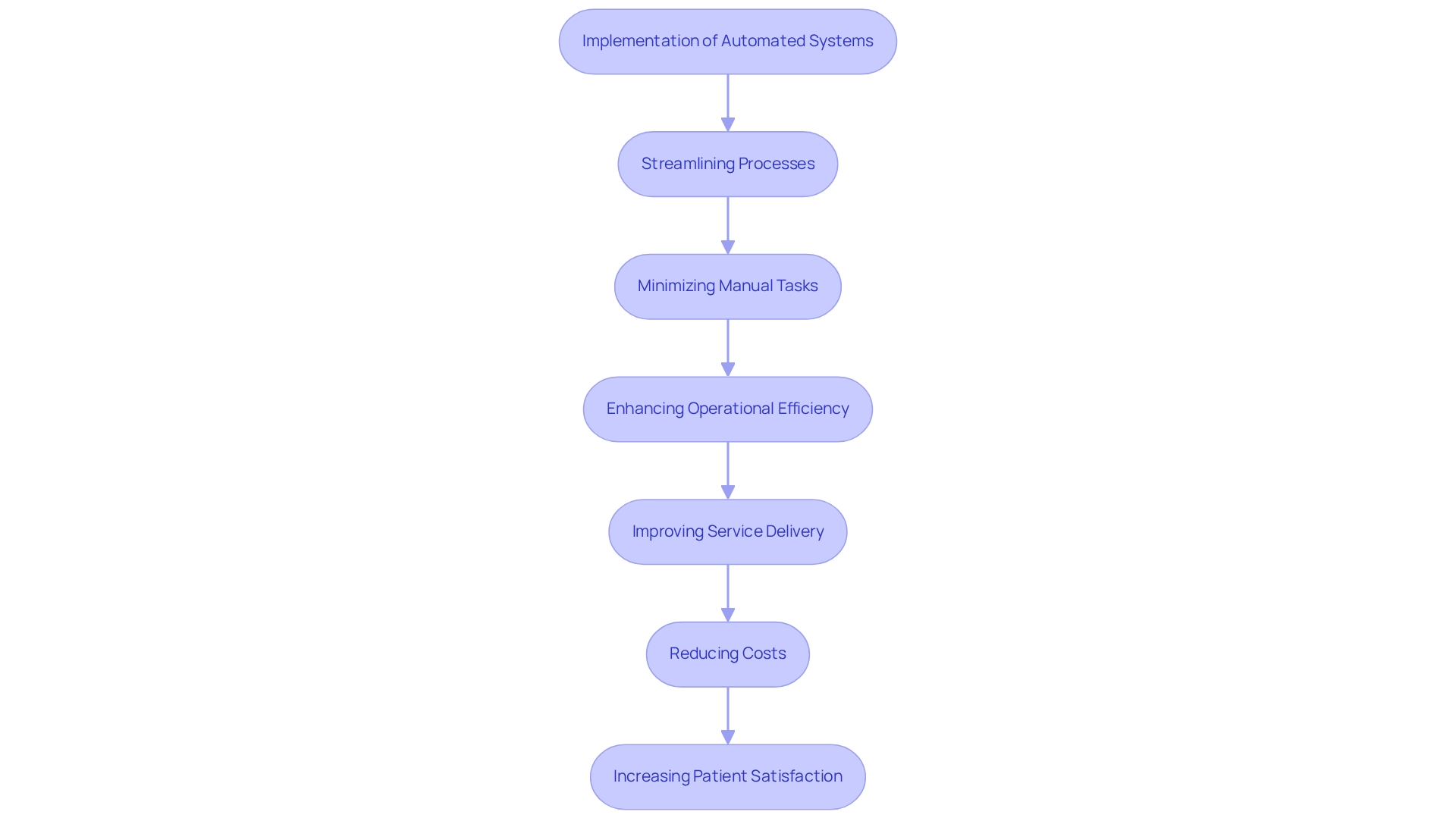
AI Mental Health Support: Transforming Patient Interactions
AI mental health support tools are revolutionizing the way we engage with mental health services. These tools, encompassing chatbots and virtual therapists, offer immediate support and resources for individuals seeking help. By ensuring 24/7 access to mental health resources, our AI-driven solutions lower barriers to care and enhance user engagement.
Notably, advancements in digital medicine, including virtual reality (VR) and artificial intelligence (AI), are introducing a human element to therapies that were previously unattainable. For instance, AI avatars such as SimCoach and Nadia serve as reliable advisors, delivering comprehensive information about treatment alternatives while responding to user inquiries with infinite patience and understanding.
As mental health remains a critical focus in healthcare, the integration of automated systems will markedly improve access and outcomes for patients. Furthermore, as we progress towards an open-data future—where individuals gain control over their health data—the potential for AI to enhance mental health support will only expand.
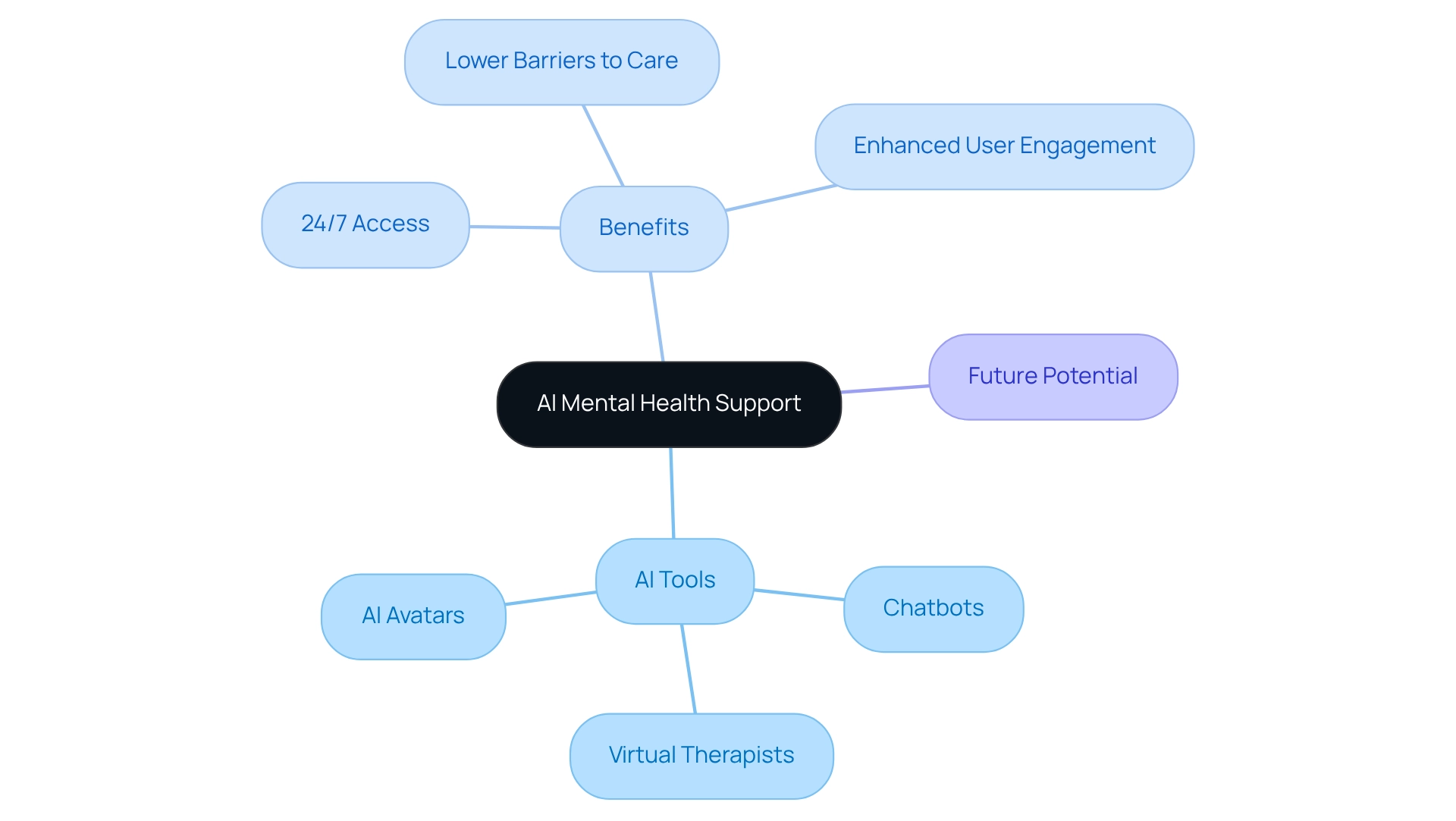
Conclusion
The advancements in healthcare technology are revolutionizing patient care and clinical outcomes. We recognize that tools like Google’s Med-PaLM 2 and the Da Vinci Surgical System exemplify how AI and robotics enhance decision-making and surgical precision, ultimately leading to improved patient experiences. Furthermore, innovations in baby sleep monitoring and robotic process automation illustrate our commitment to safety, efficiency, and personalized care, empowering both patients and caregivers with essential information and support.
As telemedicine platforms gain traction, they are expanding access to healthcare services, breaking down barriers for patients in remote areas. The integration of predictive analytics and patient engagement solutions personalizes treatment plans and fosters better communication between healthcare providers and patients. These technologies not only enhance operational efficiency but also emphasize the significance of data accessibility, allowing patients to take control of their health journeys.
The future of healthcare lies in the seamless integration of these technologies, which improve clinical outcomes and humanize patient interactions. By embracing these advancements, we can offer more empathetic, efficient, and effective care. As these transformative changes continue to unfold, we stand at the forefront of a revolution that prioritizes both patient well-being and innovative practices. What steps will you take to ensure your organization is part of this exciting future?

